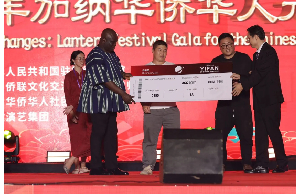Women smallholder farmers in the Jirapa District of the Upper West Region, at the weekend alleged that some politicians in authority allocated to themselves tractors brought into the country by government for farmers.
The farmers said that the tractors were to help boost food production, but some politicians were taking them, to the detriment of the actual beneficiaries.
The women smallholder farmers expressed the concern at an engagement platform with parliamentary aspirants of the Jirapa Constituency, in Jirapa.
It was organised by Action Aid-Ghana, a Non-Governmental Organisation (NGO), in collaboration with the Community Aid for Rural Development, on the theme: “Smallholder Agriculture Sensitive Manifestos and Party Pledges to reduce Poverty”.
The farmers called on government to ensure that the practice was stopped, to make the tractors accessible to smallholder farmers, especially the women.
According to the women, in the area, two out of three farmers were women; seven out of 10 bags of maize were produced by women; nine out of 10 persons in agro-processing were women and eight out of 10 persons in the marketing of food were women, yet they had limited access to inputs and tractor services.
They appealed to the Government and Parliament to ensure that more investments were made in women smallholder farmers, by increasing public spending on smallholder agriculture, devoting special budget for women farmers, and affirmative action of 40 per cent of agricultural resources, targeted at women, to increase food production and reduce poverty.
Mr. Tontie Binado, Action Aid Right to Food and Climate Change Programme Officer, said the platform sought to draw the attention of key stakeholders to the challenges confronting smallholder farmers that had the potential to undermine food security and poverty reduction efforts in Ghana.
He said recognising the role of the legislature in giving policy direction in the country, the NGO hoped that the nationwide platforms would offer vulnerable farmers the opportunity to bring out critical issues, which would inform agricultural policy decisions in the next Parliament.
Mr. Tontie said the NGO also believed that if issues affecting smallholder farmers were addressed appropriately, it would contribute to ensuring food security, improving rural livelihoods, and poverty reduction in the country.
Politics of Tuesday, 16 October 2012
Source: GNA
Politicians accused of stealing tractors
Entertainment











